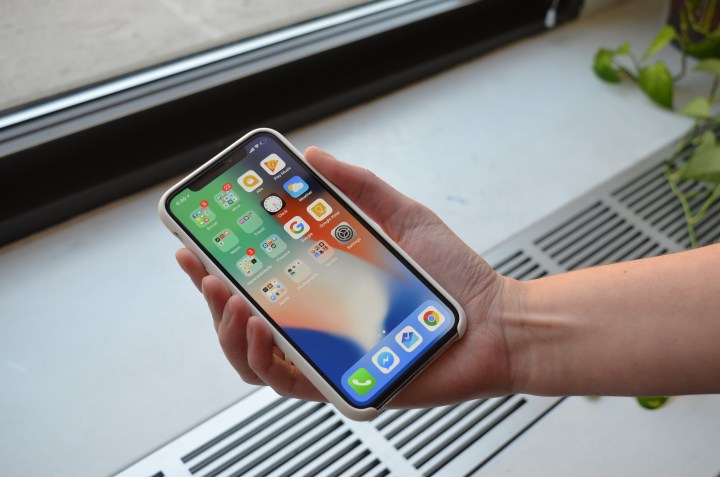
In addition to testing the iPhone X, Cetizen mixed in the Samsung Galaxy Note 8 and Galaxy 7 Edge — both of which also feature OLED screens. All three phones displayed a static image on each respective screen with settings turned up to maximum brightness throughout the entire test.
But what exactly causes burn-in? When the static image is left on your screen for too long, it then gets burned into the display permanently. This means the image is still visible even when it’s not supposed to be there anymore.
The iPhone X was the first device to show signs of burn-in after 17 hours of constant use, but the image was barely noticeable while using the device. The Galaxy Note 8 took 62 hours to show any signs of burn-in but once it did, it was much more distinct than the iPhone X.
In total, it took 510 hours of testing for the iPhone X to show permanent burn-in effects. The Galaxy 7 Edge performed well but still showed signs of visible burn-in sooner than the iPhone X — while the Note 8 experienced the worst signs of burn-in by the end of the test.
Burn-in is especially common with OLED screens across the board whether it’s smartphones, monitors, or TVs. Google’s Pixel 2 XL showed early signs of burn-in for some users in October and the company released a software update to relieve the problem but to also expand the life of the OLED panel.
With the update, the Android navigation keys fade out after a short period of time when not being used. The screen’s brightness also drops 50 nits, which Google claims is unnoticeable but will reduce the load on the screen.
While Apple doesn’t have a software update to help reduce the effects of burn-in on the iPhone X, there are steps you can take instead. Apple recommends reducing the brightness on your phone via the Control Center’s brightness slider. You can also turn on Auto-Lock so that your automatically screen turns off when you’re not using it.


